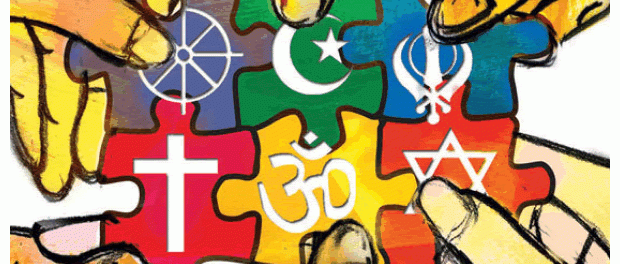In her interview with the RSP, Grace Davie provides a survey of the history of the discipline of sociology in the study of religion, and considers the manner in which it has developed in British universities, in contrast to European models. Religion, we are told, is located in societies, and is ‘not an abstract thing’, but very concrete. Sociology, as the study of society, is thus an appropriate methodology for the study of religion. In her definition of the sociological approach to religion, Davie provides the following aspects to its methodology – discovering data, the role of explanation and description, and, finally, policy applications. Davie sees sociologists as having a necessary social and legal function in advising governments, with sociological research having wider implications for the forming of policy at state level. Indeed it may be added here that sociological methods of quantitative and qualitative analysis dominate both public and private sector investigation into social trends. Social sciences are often able to represent their immediate relevance to policy-making more effectively than other disciplines, such as those of the humanities.
Davie points out that the founders of sociology emerged at a time of profound change and even crisis in Western society, with the industrialisation and urbanisation of pre-modern society. For Davie, the late 19th and early 20th century scholars who made the major contributions to understanding these changes were: Marx, Durkheim, Weber, and Simmel. Indeed these figures represent the ‘founding fathers’ of the discipline of sociology, but it remains to be considered how this discipline relates to the study of religion. Davie makes a clear distinction between the later development of the study of religion, which she associates with contemporary figures such as Ninian Smart, and the foundations of the sociology of religion.
Since the 1950s, Davie suggests that the sociology of religion has moved away from sociology departments and into departments for religious studies and theology. There has thus been a change in where the sociology of religion is located in the university, finding itself within departments of religious studies alongside other approaches to the study of religion. This shift is, she argues, indicative of how sociology has been reluctant to take religion seriously. It might be suggested that this is also indicative of the dominance that sociological approaches have come to have for faculties of religion in UK universities, superseding other classical approaches to the study of religion, such as comparative religion and the phenomenology of religion. For Davie, there has been a ‘relocation’ of the sub-discipline of the social study of religion, from sociology to the study of religion. She highlights that the traditional departments of theology, such as Durham, have broadened into religious studies and the social study of religion. Sociology departments on the other hand like that of LSE, are Davie claims, shifting more towards anthropology and away from the sociology of religion. This comes in contrast to Europe, where in the Nordic case, sociology of religion has always been found in Lutheran theology faculties, whilst in France, theology faculties are proscribed by law in public universities and thus the sociology of religion has developed there in quite a different manner.
Finally, Davie considers the future direction of the sociology of religion and suggests there are many possibilities, but these should focus on two main themes – how European societies manage the trend towards religious diversity along with the trend towards secularisation. She also suggests that the relation of the sociology of religion to politics and history should remain of utmost importance, so that the sociology of religion can maintain its influential role in policy-making and governance. Sociologists must, she says, be ‘politically literate’ and seek to overcome the ‘religious illiteracy’ that has become prevalent in modern society. It could be argued that this religious illiteracy relates precisely to the disjunction between the two main trends that Davie believes are important for the study of religion – the move towards religious diversity and the move towards secularisation. A deeply secular society and system of governance such as France, becomes less able to tolerate the beliefs and practices of different religious groups that do not conform to its Republican values of liberté, égalité, fraternité and la laïcité. The French model of secularity is discussed by Charles Cameron in his article for Lapido Media – a media charity that seeks to promote religious literacy in policy-making and governance. While French secularity, la laïcité, goes much further than the British form, Cameron argues, in prohibiting any influence of religion on the state, this secularism excludes those whose participation in society is guided by their religious background – particularly the French Muslim population.
Davie mentions her own research into religion in Britain and the importance of gender differences, but there are other significant religious divides in British society, aside from that demarcated by gender, between communities belonging to different religious traditions who don’t appear to understand each other, and between whom there is even hostility. Davie points out the limitations of traditional social theory in the academy – that the West has a habit of imposing its own model of religion and understanding of the sociology of religion through its own history of secularisation on other non-western cultures. However, this problem of methodology is indicative of a more substantive one, that with a more religiously diverse population that may not subscribe to modern secularism, Europe finds itself faced with conflicting views about social values. It may be said that secularisation has made the West religiously illiterate, in that it struggles to accommodate those who do not espouse its secular values, particularly the separation of religion from the state (la laïcité). As secularisation no longer appears the end point in the development of a modern society, we must find alternative theories to those established by Davie’s founding fathers of sociology. Indeed it is the comparative study of other social models, not subject to the same distinctions of the religious from the secular that have emerged in the West, which will contribute to understanding the problems that have been posed by increasing religious diversity in Europe.



